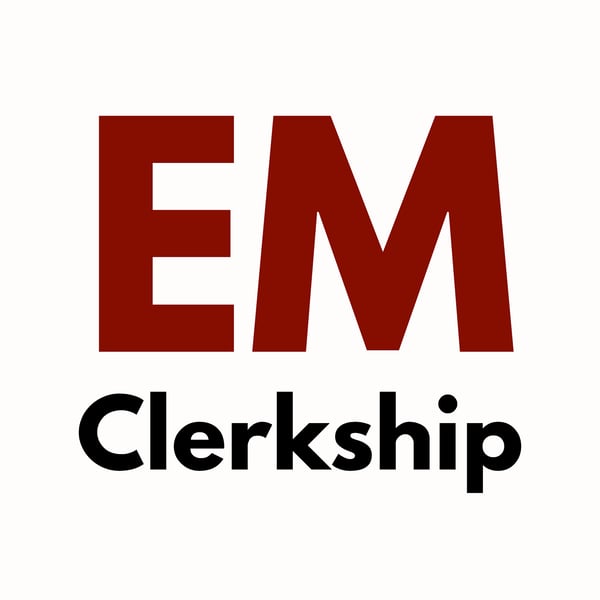ERAS 2 of 2 – How to fill out the CV section
EM Clerkship
Zack Olson, MD ; Mike Estephan, MD ; Maddie Watts, MD
5 • 795 Ratings
🗓️ 9 June 2022
⏱️ 17 minutes
🧾️ Download transcript
Summary
Transcript
Click on a timestamp to play from that location
| 0:00.0 | Hello and thank you for downloading this episode of the EM Clerkship podcast. My name is Maddie Watts, |
| 0:07.2 | and this is a series about applying and interviewing for emergency medicine residency. Today is the second |
| 0:13.9 | of two parts on the ERAS application. Last episode, we went over the eight components of the ERAS application. |
| 0:20.0 | If you haven't listened to that yet, it's a great overview. This episode, we went over the eight components of the ERAS application. If you haven't listened to that yet, it's a great overview. |
| 0:24.0 | This episode, we'll talk more about which of those components are most important to program leadership. |
| 0:30.4 | And then we'll dive into the nitty gritty of how to fill out your application, primarily the most time-consuming section, which is called the curriculum |
| 0:38.3 | v. Thai, in other words, the resume section. I remember hearing about ERAS sometime towards |
| 0:45.3 | the beginning of my third year and thinking, well, that doesn't sound too hard, and truly it wasn't. |
| 0:51.2 | But probably similar to when you filled out your AMCAS applications, |
| 0:55.5 | once I got to the ERAS application, I had a lot of questions like, what should I include or |
| 1:00.6 | not include on my CV? Where should I put this tidbit of information? Does this particular experience |
| 1:07.0 | count as research? So those are the kind of questions I want to go over with you today. |
| 1:12.6 | But first, I think it's important for us to zoom out a little bit. All of us have the same goal, |
| 1:17.6 | matching at our dream residency, and we all know that the ERAS application is the yellow brick road that takes us there. |
| 1:24.6 | But now that you know the eight components of the ERAS |
| 1:27.6 | application, you may be wondering, which of these components matters most when it comes to matching |
| 1:33.0 | at my dream residency. A 2018 study looked to find out just that. It surveyed about 120 people |
| 1:42.2 | from the emergency Medicine Program leadership. |
| 1:45.3 | This study showed that three things mattered most. |
| 1:48.5 | The first was overall evaluations on slows acquired from home and away rotations. |
| 1:53.8 | The second was the residency interview. |
| 1:56.7 | And the third was clinical grades on EM rotations. |
... |
Please login to see the full transcript.
Disclaimer: The podcast and artwork embedded on this page are from Zack Olson, MD ; Mike Estephan, MD ; Maddie Watts, MD, and are the property of its owner and not affiliated with or endorsed by Tapesearch.
Generated transcripts are the property of Zack Olson, MD ; Mike Estephan, MD ; Maddie Watts, MD and are distributed freely under the Fair Use doctrine. Transcripts generated by Tapesearch are not guaranteed to be accurate.
Copyright © Tapesearch 2025.

